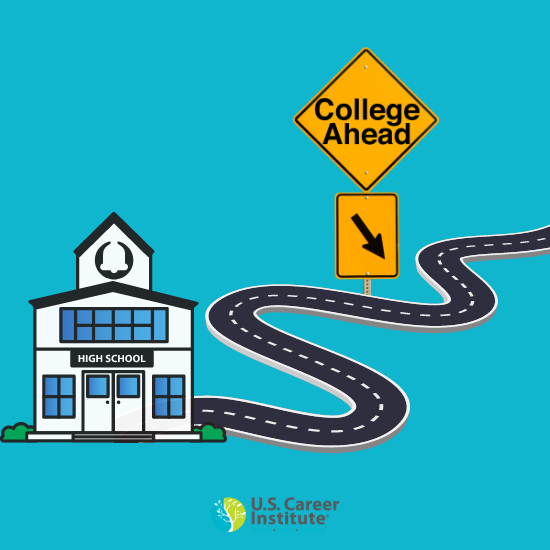Navigating the High School to College Transition
By: Jordin Frey
The transition to college from high school can feel daunting. Many students are leaving home to go to a much larger school in a new area. This new school may be filled with students from all different places and with a variety of different experiences. It's a far cry from the life they're used to, and it can be jarring. On top of social changes, College also comes with different education expectations. College comes with a lot of changes, but there are some things you can do to prepare yourself so you feel more comfortable.
How Do I Transition From High School to College?
The biggest challenge to focus on when making the transition from high school to college is that you'll need to take a lot more responsibility for your own learning. In high school, you have a rigid schedule and smaller class sizes, and both factors can help to keep you on track. When you're in college, you have a lot more freedom to make your own schedule and the classes can be larger and less frequent. It's important to learn the skills you'll need to ensure your own success.
Time Management:
The most important thing to focus on in the high school to college transition is the development of time management skills. You may be taking fewer courses at once than you did in high school, but the courses are harder and don't meet every day. You'll need to keep careful track of assignment deadlines, and you'll need to be able to schedule your time to fit in academic obligations as well as other activities.
Study Skills
If you've never been very good at studying, work on that now. High school teachers might let you make up tests you didn't do well on or missed for whatever reason, but that's not likely in college. Professors generally don't give retests or give you the opportunity to take a test later unless students have a valid reason.
Reading and Writing Skills
Brush up on your reading and writing skills. Most courses have required reading to do outside of class, and professors will expect you to come to class prepared to discuss what you've read. Most majors also require students to write well-developed essays to prove their understanding of the subject matter.
Life Skills
Not having your parents around to help you manage your schedule means that they're not there to help you manage your money, either. Part of the transition from high school to college will be figuring out how to budget for yourself. Even if you're using loans to pay for your housing and a meal plan, you'll probably have a work-study or off-campus job that gives you some pocket money, and when you want to go out with friends, you'll need to stay within your means.
Ask for Help
You'll need to be able to advocate for yourself. If you're struggling with course material, it's OK to ask for help. Most professors will have office hours as a way of making themselves available to students who need help. If you're struggling with the transition in general, talk to your advisor or your parents. There's no shame in asking for help when you need it. Asking for help may even bring up options that you didn't know existed.
Meet People
College can be a big change and it can be intimidating to meet new friends. If you have one, reach out to your roommate before hand so you are familiar with who you will be rooming with. Once you get to school go to a club fair and find a club or sport you are interested in, so you can meet new people!
When it comes down to it, the key to figuring out how to go from high school to college is learning to take more responsibility for yourself and your own success. Students who do their best to improve their study skills, manage their time wisely, and making connections with other people are likely to fare better on campus than those who don't.
Sources:
https://www.edutopia.org/article/5-research-backed-studying-techniques

